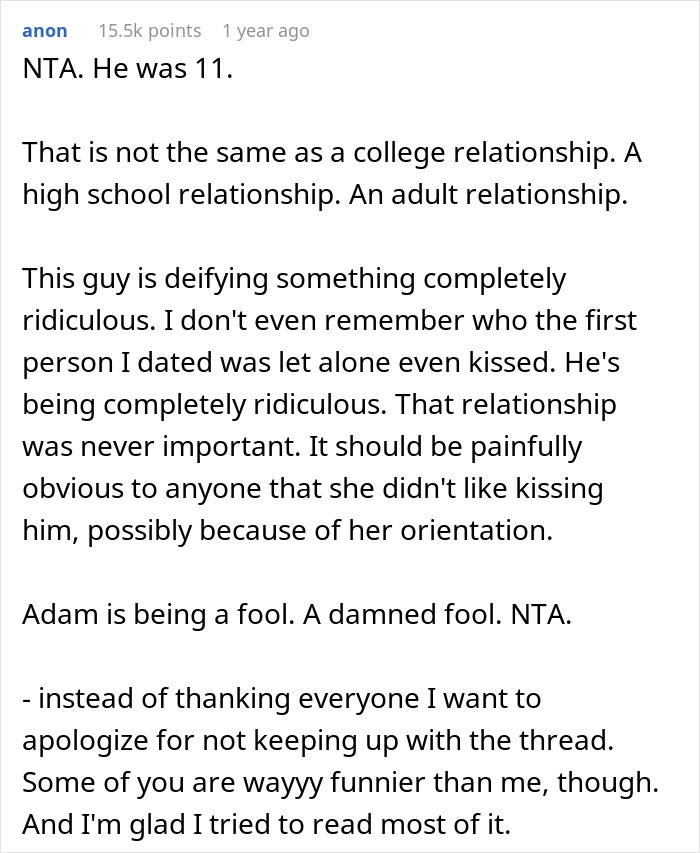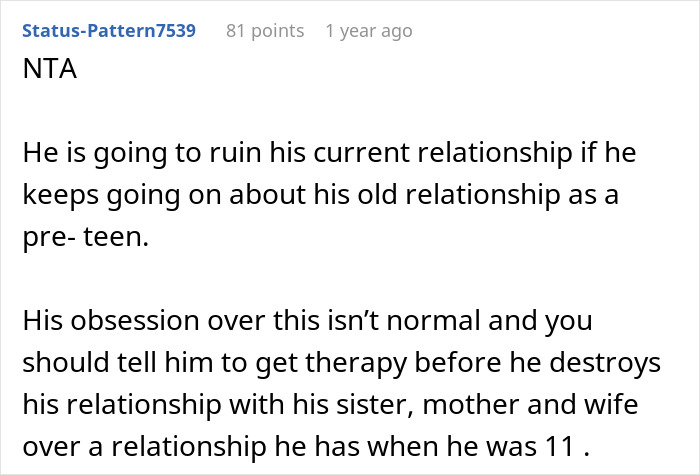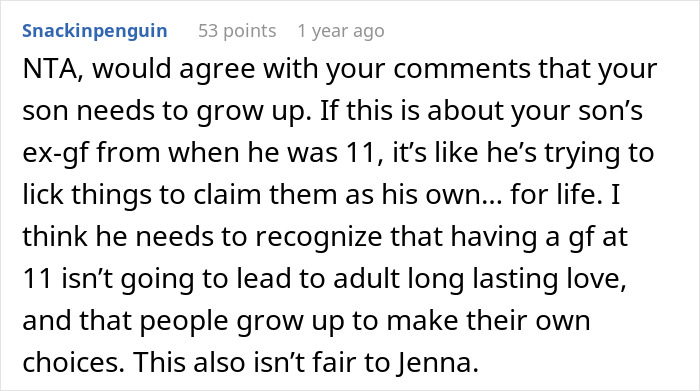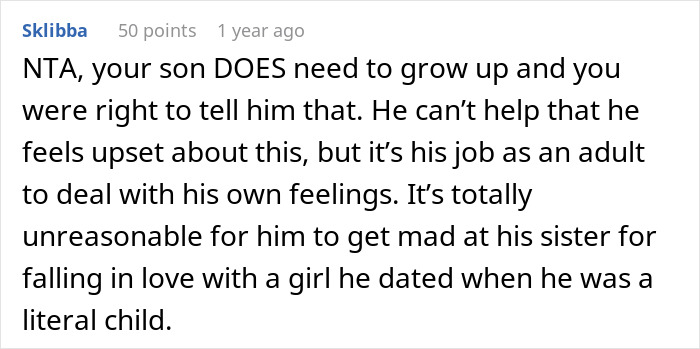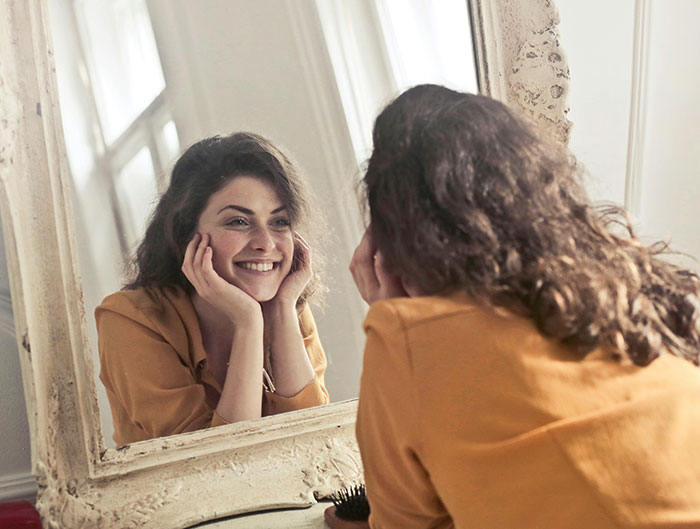It’s never fun finding out your ex is dating someone new. However ‘over’ the relationship we think we might be, there still may be some unresolved feelings left. People say you never forget your first love, and that can be true for middle school puppy love as well. But is getting jealous over it when you’re a married adult appropriate?
This mother didn’t think so. She called out her son for acting jealous when his childhood ex-girlfriend began dating his sister. The mother decided she had enough when the brother started calling his sister names and threatened to limit contact with him. Wanting to know if her response was fitting, she decided to consult people online.
Mothers can be harsh to their children sometimes, but they can also help them see things more objectively
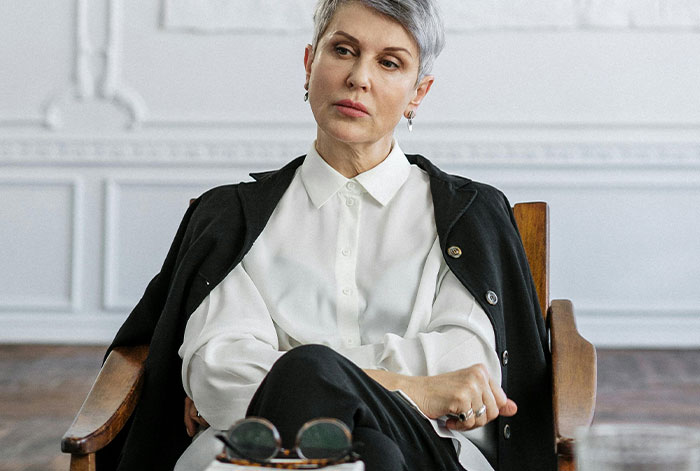
Image credits: cottonbro studio (not the actual photo)
This mother told her son to grow up and get over his middle school girlfriend, who was now dating his sister
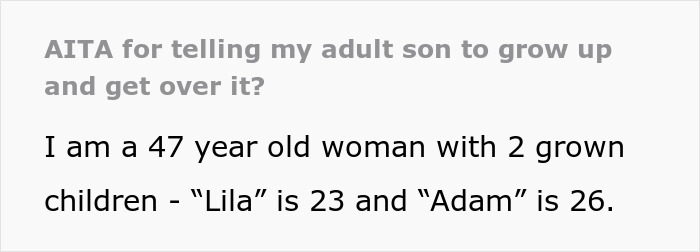










Image credits: cottonbro studio (not the actual photo)

Image source: [deleted]
A person’s happiness should come first, and the approval from their sibling after

Image credits: Anastasia Shuraeva (not the actual photo)
A family member disapproving of a relationship is nothing new. Sometimes, it’s parents or an aunt, and other times, it’s a sibling who doesn’t like your new partner. In this case, the brother feels extra jealous because it’s his middle school sweetheart. The sister probably feels hurt and frustrated.
Neuropsychologist and the director of Comprehend the Mind, Dr. Sanam Hafeez, told Women.com that the sibling should approach the issue with empathy and understanding. After all, if the sister is happy in her relationship, isn’t that all that should matter?
Hafeez said that the siblings should talk these issues out. “Ask them why they do not approve of your partner and give them a chance to express their thoughts and feelings.” In some cases, the sibling’s concerns might be valid, as they point out potential red flags about your partner.
It’s important to let the sibling know how their disapproval makes you feel. “Explain why you value your relationship with your partner and why you believe they are a good fit for you,” Dr. Hafeez told Women.com. “Share positive aspects of your partner’s character and the reasons why you are committed to the relationship … Clearly communicate your happiness and the positive aspects of your relationship.”
If the sibling refuses to change their opinion, another course of action might be what the mother in this story did. Dr. Hafeez said the decision about a romantic partner is ultimately for the person to make, not for their sibling. “Communicate that you expect respect for your choices and that you will not tolerate disrespectful or intrusive behavior.”
There is truth to the myth about first loves
Image credits: Andrea Piacquadio (not the actual photo)
The brother seems to think that “Jenna” was his first love. And while many commenters seem to think middle school sweethearts don’t qualify as a ‘first love,’ there is some truth to the myth generally.
We hear it in movies and songs that the first love is always the hardest to get over. But is there any actual evidence behind it? Licensed Christian Counselor Joseph Bordelon told Bustle that this has to do with the time period when we experience first love.
“Memories during your adolescent years leave hormonal imprints at the same time as your neurological developments are forming your identity.” As many people fall in love during adolescence, they may find that the memory lives long after the breakup.
Biological Anthropologist Helen Fisher, who has spent her entire life researching love, told The Guardian that first loves are particularly dramatic.
Throughout her years of research, she has found the brain pathway of people who have fallen madly in love. She claims that love activates addiction centers of the brain. “You’re addicted when you fall in love with somebody. Addicted to them.”
Catherine Loveday, a professor at the Centre for Psychological Sciences at the University of Westminster, also told The Guardian that memories from when we were tweens stay with us even when we are in our 80s.
“We continue to learn and we continue to use it as a foundation for who we are. These memories help to give us a sense of what kind of person we are, what kind of lover we are, who we are.”
People agreed that the mother’s reaction was appropriate and called out the son for his odd behavior
